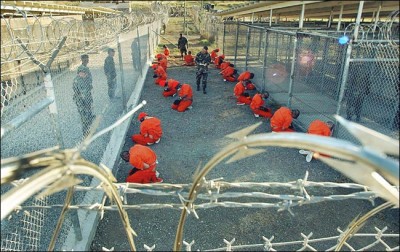NDAA Includes Provisions Blocking Biden from Closing Gitmo
Biden released a statement saying he objected to the measures

All Global Research articles can be read in 51 languages by activating the “Translate Website” drop down menu on the top banner of our home page (Desktop version).
To receive Global Research’s Daily Newsletter (selected articles), click here.
Visit and follow us on Instagram at @globalresearch_crg.
***
The 2022 National Defense Authorization Act (NDAA) that President Biden signed on Monday includes amendments that block him from taking steps to close the notorious prison at Guantanamo Bay in Cuba.
The bill extends amendments that were in previous NDAA’s that block the White House from using funds to transfer or release Gitmo detainees into the US or other countries. The bill also blocks the use of funds to close the US naval base at Guantanamo Bay altogether.
After signing the bill, Biden released a statement denouncing the restrictions. “Unfortunately, section 1032 of the Act continues to bar the use of funds to transfer Guantánamo Bay detainees to the custody or effective control of certain foreign countries, and section 1033 of the Act bars the use of funds to transfer Guantánamo Bay detainees into the United States unless certain conditions are met,” the statement said.
Biden said the provisions “unduly impair the ability of the executive branch to determine when and where to prosecute Guantánamo Bay detainees and where to send them upon release.” Despite his objections, Biden still signed the massive $777.7 billion NDAA that authorized about $25 billion more than he requested from Congress.
Biden has pledged to close Gitmo, but the same promise was also made by President Obama. There are currently 39 detainees in the prison, and only 11 have been formally charged with crimes. Gitmo costs about $540 million to operate each year, meaning the US government spends over $13 million for each prisoner.
In July, Biden transferred former detainee Abdul Latif Nasser to his home country of Morrocco. Nasser was held since 2002 on no charges and was cleared for release five years ago. Like other Gitmo inmates, Nasser faced torture and other abuses during his time at the US military prison.
*
Note to readers: Please click the share buttons above or below. Follow us on Instagram, @crg_globalresearch. Forward this article to your email lists. Crosspost on your blog site, internet forums. etc.
Dave DeCamp is the news editor of Antiwar.com, follow him on Twitter @decampdave.

